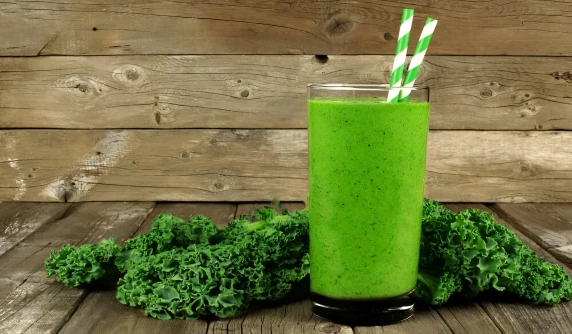
Diet soda is a kind of beverage that tastes similar to regular soda but has either no sugar or very little. In essence, it is a concoction of food additives such as colors, flavors, and artificial or natural sweeteners, along with carbonate water.
Diet sodas often have very few calories, if any, and little nutritional value. Those with diabetes and others who wish to cut back on sugar or calories are typically the target market for these products.
Carbonated water containing sugars, artificial or natural flavoring, and occasionally extra vitamins and minerals is called regular soda. Caffeine and other substances, such as quinine in tonic sodas, may also be included in the beverage. Usually, sugar, high-fructose syrup, or fruit juice in the healthier varieties, is used as a sweetener in soda drinks.
Compared to diet soda, regular soda has more calories and sugar, which can lead to weight gain and other health issues. However, a lot of chemicals and additives, which might be bad for your health, are included in both regular and diet sodas.
Diet soda is a fizzy beverage with no calories or few calories that is made with artificial sweeteners. A large portion of the American population regularly consumes diet sodas. Doctors are now advising patients with diabetes and those struggling with weight issues to drink diet Coke.
The Health Advantages of Diet Soda
For those who enjoy the flavor of regular soda but don't need the added sugar or calories, diet soda is a great option. A typical can of ordinary cola may have an astounding 37 grams of sugar, and studies have shown that drinking excessive amounts of sugar can lead to health problems like obesity and heart disease.
It seems natural, then, that you could look for a substitute that is sugar-free. Monitoring sugar and carbohydrate intake is crucial for managing both forms of diabetes, even though ingesting sugar does not cause either kind of the disease. Maintaining an active lifestyle and eating well can help lower your chance of getting type 2 diabetes.
Consuming too much sugar can have a number of detrimental impacts on health, such as:
-
Weight gain and obesity
-
Acne
-
Type 2 diabetes
-
Cardiovascular disease
-
Cognitive problems, including dementia and Alzheimer’s
Regular sodas have a lot of sugar, whereas diet sodas don't. Approximately 39 grams, or ten teaspoons, of sugar are found in a normal can of ordinary soda. Diet sodas, on the other hand, are sweetened with sugar-free or low-calorie sweeteners.
Because diet soda is low in calories, it may help you cut calories overall and possibly lose weight. It can satiate your sweet taste without having the extra calories and sugar that conventional Coke has. According to some research, diet soda may aid in weight loss by lowering cravings and appetite.
Diet soda Is Associated with Lower Health Risks
It's unlikely to harm you to consume one or two cans of diet soda every day, as this is an acceptable amount. There is no reliable proof that the artificial sweeteners and other chemicals found in diet soda cause cancer, therefore for the most part, these substances are safe. In some cases, vitamin and mineral fortification is added to diet soda.
Too much sugar consumption is closely linked to childhood tooth decay. Sugar is used by bacteria to create acid, which erodes tooth enamel and causes cavities. Dental issues can be avoided by reducing consumption of sugary foods and beverages and promoting proper oral hygiene practices.
According to some researchers, consuming too much sugar raises the risk of obesity, T2D, heart disease, metabolic syndrome, non-alcoholic fatty liver disease, and may even stimulate the brain's reward pathways, which in turn leads to overindulgence in calories.
It is commonly acknowledged that consumption of sugar-sweetened beverages (SSBs) must be decreased. However, there is rising debate in policy circles on whether artificially sweetened beverages (ASBs) are a recommended substitute due to accumulating evidence of potential health impacts linked with excessive use.
This was done in an effort to gauge how much the general Australian public knew about the dangers of consuming soda and other sugar-filled beverages (ASBs), such as diet soda. This information is crucial for determining which aspects of public health interventions should focus on raising awareness of these issues.
Resolving Issues with Artificial Sweeteners
While sugar-filled meals and beverages seem to be less dangerous than artificial sweeteners, a growing body of research indicates that artificial sweeteners alter gut flora, raising the risk of weight gain and diabetes. Artificial sweeteners have been linked to weight gain and elevated blood sugar levels.
We have sweetened our cuisine with a variety of items, such as sugar or honey, for ages. We also have a variety of different sweeteners available now that offer sugar substitutes with fewer calories.
Strict guidelines about which sweeteners can be used safely and what information needs to be on labels to advise consumers have been set by the EU. They require very little because they are intensely sweet. Bulk sweeteners, low-calorie sweeteners, or "polyols" are another popular class of sweeteners.
Regular sodas are sweet and filling, and they should be used in moderation. They should be considered an addition to your diet rather than a necessary component. However, each year, healthier drink options are also released onto the market. There are certain nutritional facts concerning regular sodas that you should be aware of and may find useful.
Diet sodas are the best option for anyone who has trouble limiting their sugar intake. They're an excellent place to start when switching to more wholesome and nutrient-dense drinks. Diet drinks with organic and natural ingredients are very helpful.
Artificial sweeteners are used in diet soda to create a sweet flavor without adding extra calories. Nonetheless, discussions over the safety and possible health repercussions of artificial sweeteners have been sparked by their use.
Regulatory agencies have permitted their usage, although some research points to potential negative health effects. It's critical to exercise moderation in intake and make educated decisions. Given the obesity crisis, the amount of soda consumed by teenagers in North America is a cause for concern.
Concluding Words and Suggested Reading List
Conversely, diet soda usually has less sugar and calories. This makes it a well-liked option for those attempting to control their blood sugar levels or reduce weight. Furthermore, research has indicated that diet Coke may help lower the chance of developing some illnesses, such heart disease and stroke.
Artificial sweeteners have been connected in some studies to a higher risk of obesity, type 2 diabetes, and other health issues. Even though diet and zero-sugar drink could be preferable than regular soda, it's crucial to keep in mind that they should still be used sparingly. It's always healthier to drink unsweetened tea or water.
Recommended Books:
- The Sweet Poison Quit Plan by David Gillespie
- Soda Politics: Taking on Big Soda (and Winning) by Marion Nestle
- The Case Against Sugar by Gary Taubes



